If you’re looking for a natural way to boost your mood, consider adding some plants to your indoor space. Studies have shown that plants can have a positive effect on mental health, helping to alleviate symptoms of depression.
“In all things of nature there is something marvelous.” -Aristotle

Credit: Pexels
Indoor plants don’t only look great, they can also help purify the air and increase humidity levels, both of which are beneficial for your health. Plants also produce negative ions, which have been shown to improve mood and reduce stress levels.
So if you’re feeling down, consider adding a few plants to your indoor space. You may just find that they have a positive impact on your mental health.
How Plants Can Help With Depression
Plants can help with depression in many ways. They can boost your mood, help you relax, and give you a sense of accomplishment.

- One of the ways plants can help with depression is by boosting your mood. Studies have shown that being around plants can improve your mood and make you feel happier. This is because plants release a gas called phytoncides, which have been shown to have mood-boosting effects.
- Another way plants can help with depression is by helping you relax. If you’re feeling stressed or anxious, spending time with plants can help you relax. This is because plants can help to reduce levels of the stress hormone cortisol in the body.
- Finally, plants can give you a sense of accomplishment. When you take care of a plant and it grows, it can give you a sense of pride and satisfaction. This can be a great way to boost your self-esteem and confidence, which can be helpful if you’re feeling down.
The Power Of Nature: How Plants Can Help With Depression
Depression is a serious mental illness that affects millions of people around the world. Symptoms of depression can include feelings of sadness, hopelessness, and fatigue. Depression can also cause physical problems such as sleep problems, appetite changes, and headaches.
While there is no one cause of depression, there are many factors that can contribute to it. These can include genetic factors, brain chemistry, and stressful life events.
Treatment for depression often includes medication, therapy, and lifestyle changes. Some people with depression may also benefit from adding plants to their treatment plan.
There is some evidence that certain plants can help to relieve symptoms of depression. For example, the herb St. Johns wort has been shown to be effective in treating mild to moderate depression.
Other plants that have been shown to be helpful in treating depression include Lavender, Chamomile, Ginseng, Passionflower, and Saffron.
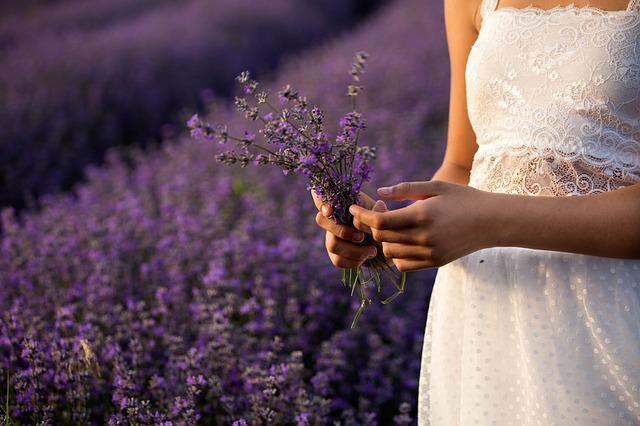
If you are considering adding plants to your treatment plan, it is important to talk to your doctor first. Some plants can interact with medications that are used to treat depression. Make sure to tell your doctor about any plants you are taking, as well as any other medications or supplements.
In addition to taking plants for depression, there are other lifestyle changes that can be helpful. These include getting regular exercise, eating a healthy diet, and getting enough sleep.
Making these changes can be difficult, but they can be very helpful in treating depression. If you are not sure where to start, talk to your doctor or therapist. They can help you make a plan that is right for you.
The Benefits Of Indoor Plants For Depression
Indoor plants have been shown to have a number of benefits for people suffering from depression. One study found that patients who were exposed to plants and flowers in their hospital rooms had lower levels of anxiety and stress than those who were not.
Another study found that people who had plants in their homes were more likely to report higher levels of satisfaction with their lives than those who did not. Plants have also been shown to improve air quality, increase humidity, and reduce noise levels, all of which can contribute to a feeling of well-being.
The Top 10 Plants For Depression
1. St. John’s Wort
St. John’s Wort is a plant that has been used for centuries to treat depression. It is thought to work by increasing levels of serotonin, a chemical in the brain that helps to regulate mood.
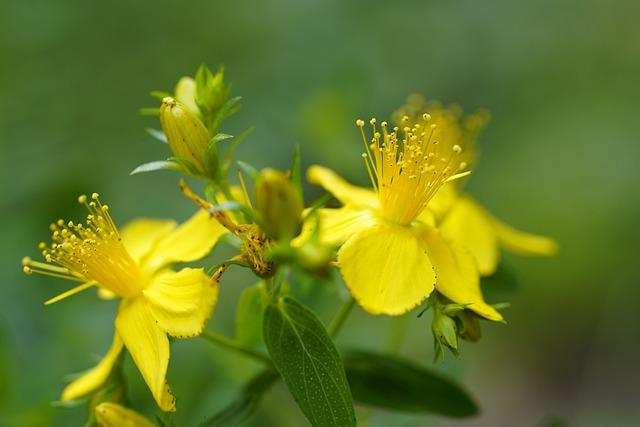
2. SAM-e
SAM-e is a compound that is naturally found in the body and is involved in the production of serotonin. Supplementing with SAM-e has been shown to be effective in treating depression.
3. Omega-3 Fatty Acids
Omega-3 fatty acids are found in fish oil and have been shown to be effective in treating depression. They are thought to work by reducing inflammation in the brain.
4. Saffron
Saffron is a spice that has been used for centuries to treat depression. It is thought to work by increasing levels of serotonin in the brain.
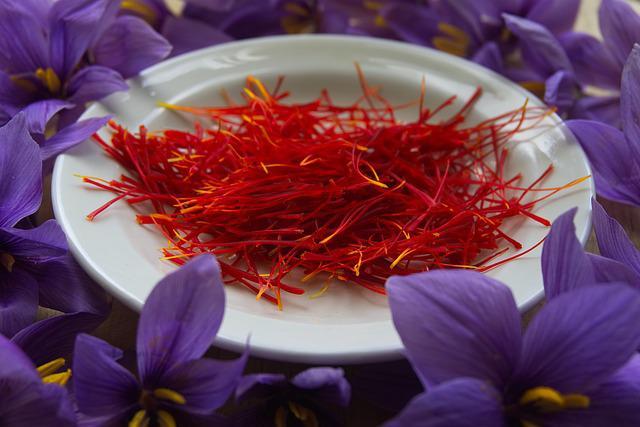
5. Ginkgo Biloba
Ginkgo biloba is a plant extract that has been used for centuries to treat depression. It is thought to work by increasing blood flow to the brain.
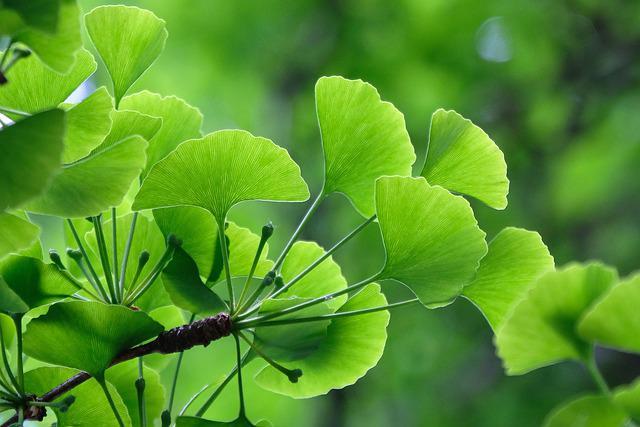
6. Ashwagandha
Ashwagandha is an herb that has been used for centuries to treat depression. It is thought to work by reducing stress and anxiety.
7. Rhodiola Rosea
Rhodiola rosea is an herb that has been used for centuries to treat depression. It is thought to work by increasing levels of serotonin and norepinephrine in the brain.
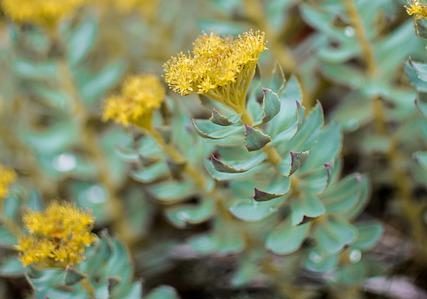
8. Lavender
Lavender is an herb that has been used for centuries to treat depression. It is thought to work by increasing levels of serotonin and gamma-aminobutyric acid in the brain.
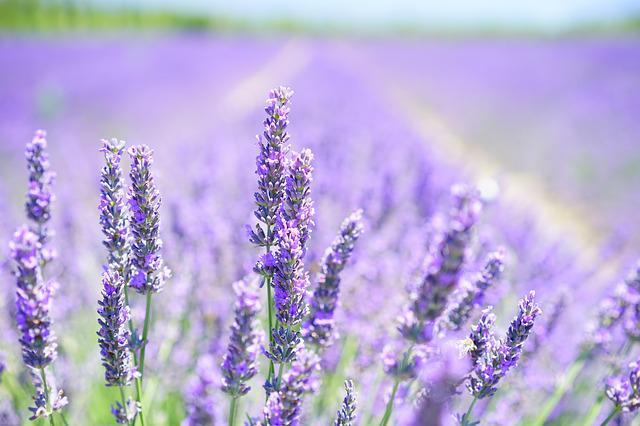
9. Lemon Balm
Lemon balm is an herb that has been used for centuries to treat depression. It is thought to work by increasing levels of serotonin in the brain.
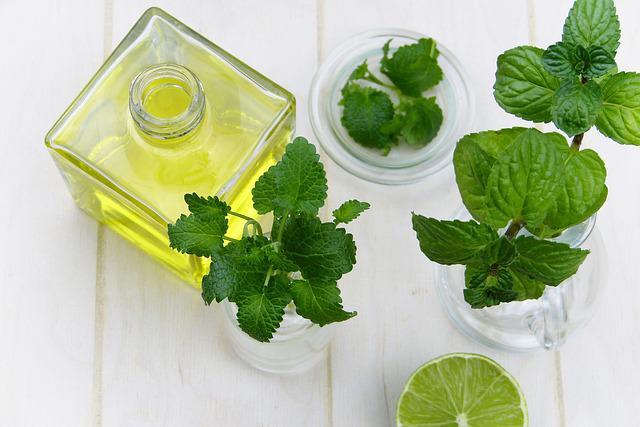
10. Chamomile
Chamomile is an herb that has been used for centuries to treat depression. It is thought to work by increasing levels of serotonin in the brain.
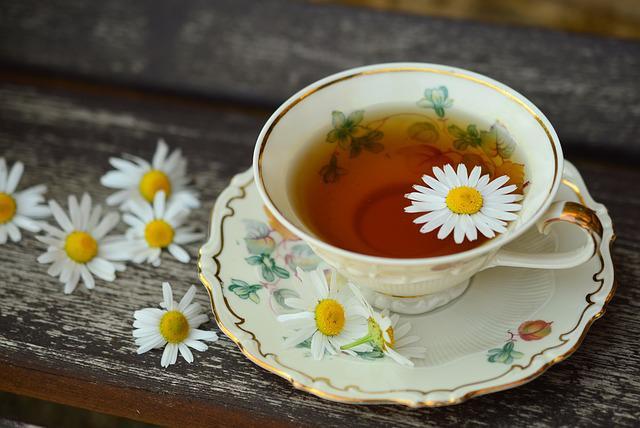
The Worst Plants For Depression
There are certain plants that can actually make depression worse. If you’re struggling with depression, it’s important to avoid these plants. Here are some of the worst plants for depression:
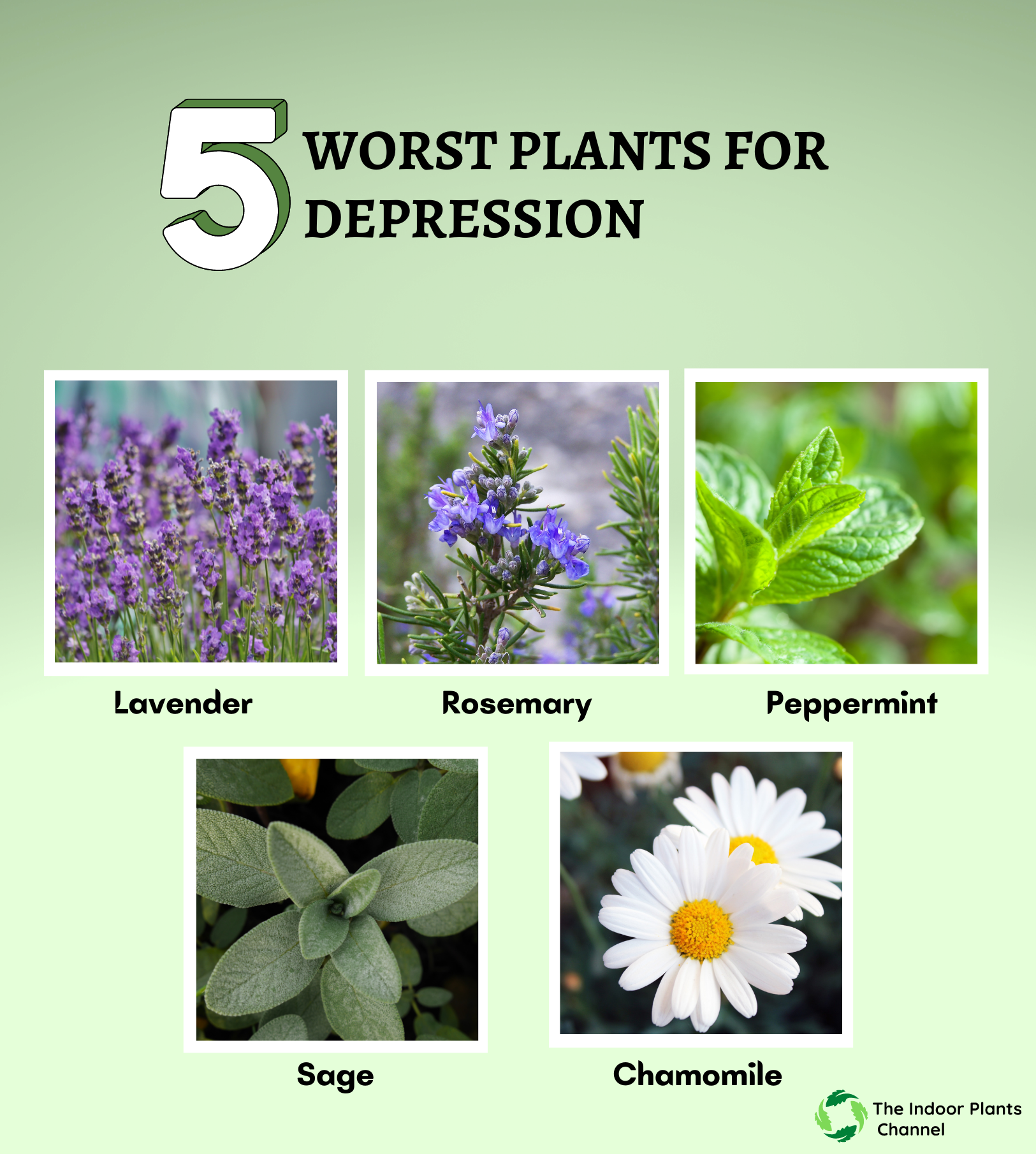
1. Lavender
Lavender has long been used as a natural remedy for anxiety and stress. However, it can actually make depression worse. Lavender can cause headaches, dizziness, and nausea. It can also make you feel more anxious and stressed. If you’re struggling with depression, it’s best to avoid lavender.
2. Rosemary
Rosemary is another plant that is often used to relieve stress and anxiety. However, like lavender, it can actually make depression worse. Rosemary can cause nausea, vomiting, and dizziness. It can also make you feel more anxious and stressed. If you’re struggling with depression, it’s best to avoid rosemary.
3. Sage
Sage is often used as a natural remedy for anxiety and stress. However, it can actually make depression worse. Sage can cause headaches, dizziness, and nausea. It can also make you feel more anxious and stressed. If you’re struggling with depression, it’s best to avoid sage.
4. Peppermint
Peppermint is often used as a natural remedy for nausea. However, it can actually make depression worse. Peppermint can cause headaches, dizziness, and nausea. It can also make you feel more anxious and stressed. If you’re struggling with depression, it’s best to avoid peppermint.
5. Chamomile
Chamomile is often used as a natural remedy for anxiety and stress. However, it can actually make depression worse. Chamomile can cause headaches, dizziness, and nausea. It can also make you feel more anxious and stressed. If you’re struggling with depression, it’s best to avoid chamomile.
How To Grow Plants For Depression
If you’re looking to grow plants that can help with depression, there are a few things to keep in mind.
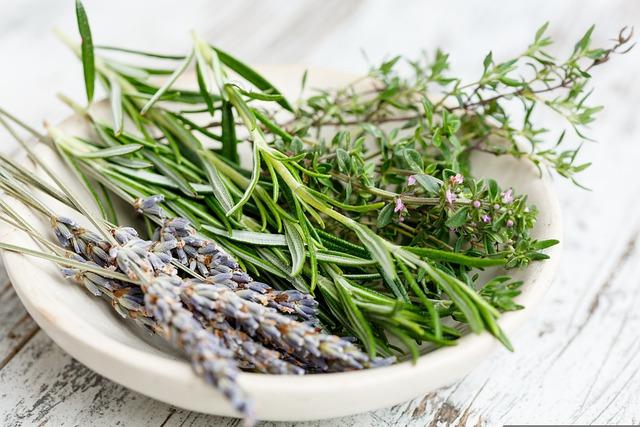
- Firstly, it’s important to choose plants that are known to have mood-boosting properties. Some good examples include lavender, chamomile, and jasmine.
- Secondly, make sure to give your plants plenty of sunlight. Studies have shown that exposure to sunlight can help improve mood and alleviate symptoms of depression.
- Lastly, don’t forget to care for your plants properly. This means watering them regularly, keeping them free of pests, and providing them with the nutrients they need to thrive. By taking good care of your plants, you’ll be more likely to reap the benefits of their mood-boosting properties.
How To Choose The Right Plants For Depression
There are many different plants that can help with depression, but not all of them will work for everyone. It’s important to choose the right plant for you, based on your specific needs.
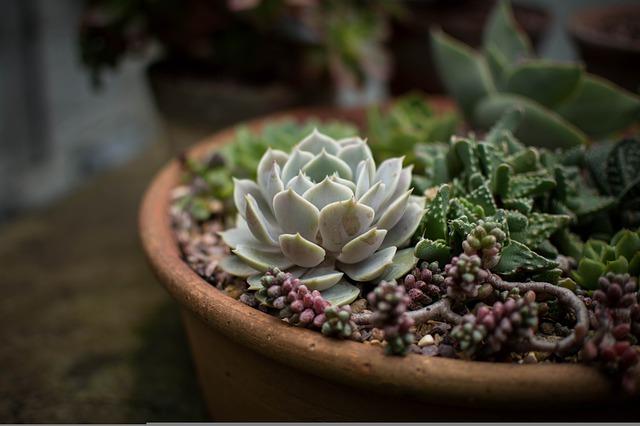
Here are some things to keep in mind when choosing a plant for depression:
- Consider the severity of your depression. Some plants are more effective for milder forms of depression, while others are better for more severe cases.
- Talk to your doctor. If you’re on medication for depression, make sure to talk to your doctor before adding a plant to your treatment plan. Some plants can interact with medications.
- Consider your other health conditions. Some plants can interact with other health conditions, so it’s important to take those into account when choosing a plant.
- Be patient. It can take a few weeks for a plant to start working, so don’t give up if you don’t see results right away.
Bonus Tips
- Spend time with the plant each day, talking to it, watering it, and giving it attention.
- Place the plant in a room where you spend a lot of time, such as your bedroom or living room.
- Use the plant as decoration, placing it in a spot where it can be seen and enjoyed.
- Give the plant to someone who you think could benefit from its calming presence.
- Choose a plant that is easy to care for and that has a pleasing appearance.
- Additionally, it may be helpful to choose a plant that has known mood-boosting properties
Frequently Asked Questions
- What is the Power of Nature?
The Power of Nature is the ability of plants to help with depression.
-
How do plants help with depression?
Plants help with depression by providing essential nutrients that the body needs to function properly. They also help to improve mood and reduce stress.
-
What are some of the best plants for depression?
Some of the best plants for depression include chamomile, lavender, and lemon balm.
-
How do I use plants to help with depression?
There are several ways to use plants to help with depression. You can consume them in teas or capsules, or you can use them in aromatherapy.
-
Are there any side effects to using plants for depression?
There are no known side effects to using plants for depression. However, it is always best to consult with a healthcare professional before starting any new treatment.
Conclusion
Depression is a serious problem that can have a negative impact on every aspect of a person’s life. However, there is hope. Plants can help to improve mood and provide a sense of calm. They can also help to reduce stress and anxiety.
If you are struggling with depression, consider adding some plants to your life. Some plants like St. John’s Wort, Jasmine, Saffron, etc. are best for treating depression. You can check out the post to know more about these plants.
Michelle Wilde
Related posts
![]()
About Michelle Wilde
Michelle Wilde is a stay-at-home mom and avid plant lover. Armed with a post-graduate degree in Computer Science (no kidding!), she loves researching plants and landscapes. When she is not caring for her 4 kids, she spends time on her passion for plants. She blogs at www.indoorplantschannel.com, the trusted source for indoor plants.
Learn more
Subscribe
* You will receive the latest posts and updates about indoor plants!
Search
Recent Posts
Categories
- Beginner Guides (10)
- FAQ (206)
- General (2)
- How-To Guides (212)
- Indoor Plants (214)
- Pest Management (2)
- Plant Problem Solutions (4)
- Seasonal Growing (2)
- Specialized Environments (2)
- Specific Plant Care (3)
- Technical Growing (2)
